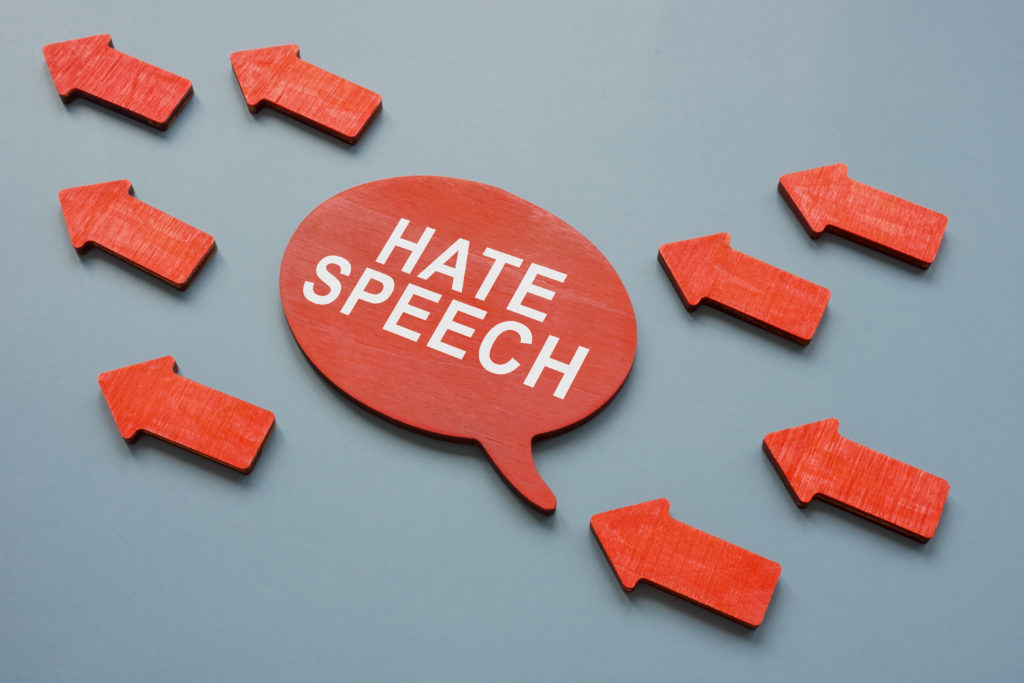Quick Hits
Daily brief research updates from the cognitive sciences

I am sure we all know that feeling of getting more irritable when temperatures rise. Well, now we have some fascinating research to show that that irascibility is also measurable in the amount of hate speech online.
We may assume that hate speech is simply the language of a number of opinionated and disagreeable folk. Sure, it is, but this shows that, seemingly, local temperatures magnify this effect.
So, what was this fascinating study?
This was conducted by Annika Stechemesser, et al. of the Potsdam Institute for Climate Impact Research by analysing over 4 billion tweets in the US using AI algorithms. From this they identified about 75 million English phrased hate tweets. They were then mapped to local temperatures and lo and behold a correlation was found.
What they found is that there is feel good window which corresponds to the minimum of hate tweets. That feel good window is between 12 and 21°C with the absolute minimum between 15 and 18°C. Temperatures either above or below, interestingly, led to an increase in hate tweets. Temperatures above 30°C are consistently linked to an increase in hate tweets across climate zones and socioeconomic differences including income, religious beliefs, or political preferences.
This is fascinating because it shows that local environmental conditions also impact hate behaviour – previously only considered as an attitude, personality, or belief problem. It also shows that changing climate dynamics with a global increase in extreme weather will likely also drive an increase in bad behaviour online and on social media.
Note also that this is not US specific with the same group of researchers also finding similar patterns in Europe.
This is important to note because this behaviour will likely occur in all social situations, in business and in society. We seem to have an optimal window and out of this things get, well, heated.

Andy Habermacher
Andy is author of leading brains Review, Neuroleadership, and multiple other books. He has been intensively involved in writing and research into neuroleadership and is considered one of Europe’s leading experts. He is also a well-known public speaker, speaking on the brain and human behaviour.
Andy is also a masters athlete (middle distance running) and competes regularly at international competitions (and holds a few national records in his age category).
References
Annika Stechemesser, Anders Levermann, Leonie Wenz.
Temperature impacts on hate speech online: evidence from 4 billion geolocated tweets from the USA.
The Lancet Planetary Health, 2022; 6 (9): e714
DOI: 10.1016/S2542-5196(22)00173-5
A Stechemesser, L Wenz, M Kotz, A Levermann.
Strong increase of racist tweets outside of climate comfort zone in Europe.
Environmental Research Letters, 2021; 16 (11): 114001
DOI: 10.1088/1748-9326/ac28b3
More Quick Hits
Neurons for alcohol withdrawal
I’ve reported on alcohol a number of times. Most recently reporting that even low quantities of alcohol appear to age the brain (however, higher quantities are much worse). Researchers had previously found that a signalling molecule pathway in the brain seemed to...
How the Arts Help Self Control
Quick HitsDaily brief research updates from the cognitive sciencesome people criticise arts education, thinking that it is more play and has no clear life function. Normally a certain type of conservative. This is short minded; we know that arts...
How the gut communicates with your brain
Quick HitsDaily brief research updates from the cognitive sciences ust after publishing the article on Serotonin and stating that the gut and brain’s serotonin systems can be considered separate entities, out comes a piece of research to show that...
Are you an “elite sleeper”? It’s in your genes.
Quick HitsDaily brief research updates from the cognitive sciences ’ve reported many times on different aspects of sleep and how important this is for health in general and for brain health in particular. You can go here for a short review of all...
Controlling social mingling by laser
Quick HitsDaily brief research updates from the cognitive sciences here has been plenty of research into brain areas that contribute to our social brain but these researchers around Stephen Mague at Duke University went a step, or two, further and...
Exercise is Infectious
Quick HitsDaily brief research updates from the cognitive sciences his is an older study (2017) I came across and found fascinating. As many of you regular readers will know I have reported many times on the benefits of exercise. But this study was...






